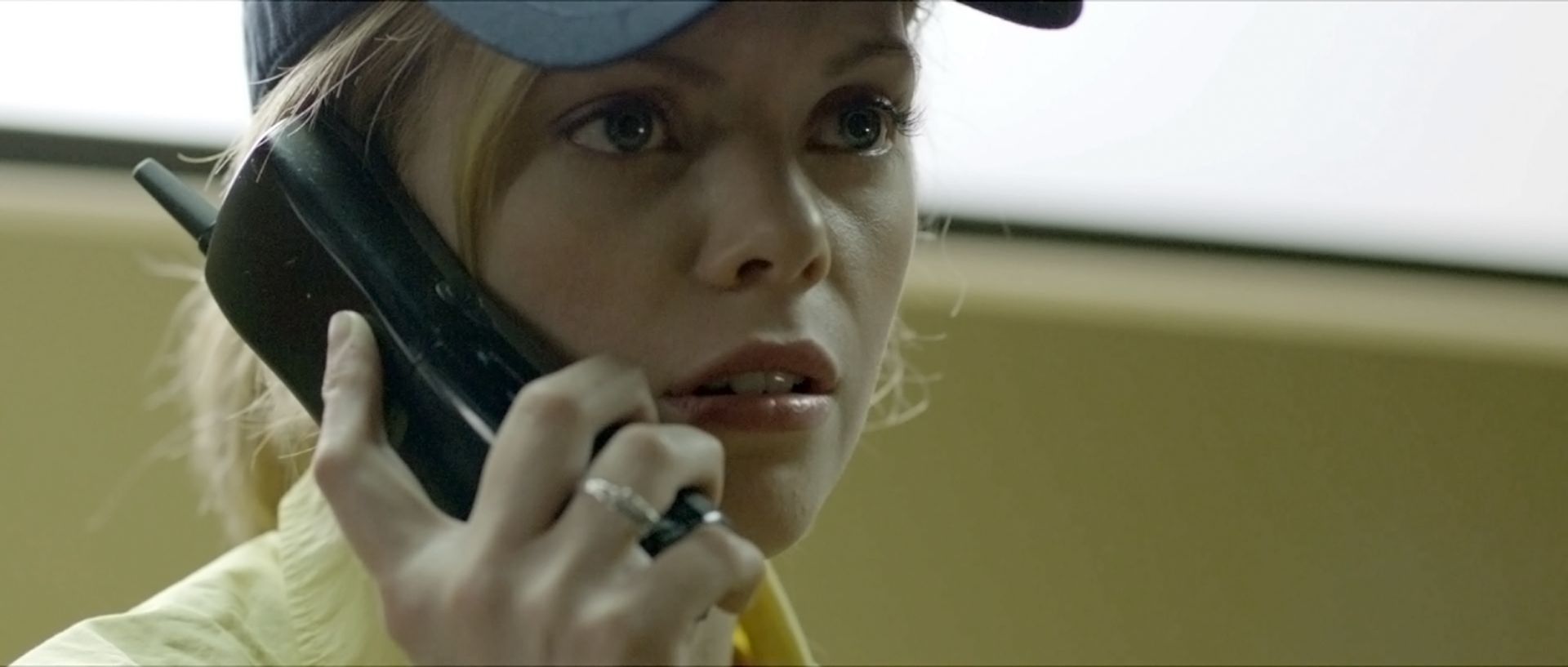There’s no way to get through Craig Zobel’s superb Compliance without being agitated, impatient, upset even—it’s a difficult sit. It’s also the most discussion-worthy and provocative movie of 2012. There simply won’t be another movie that shakes us up like this, haunts us for days after and makes us question what we’ve seen. When was the last time a movie did that?
Very closely based on true events, Compliance is a harrowing psychological thriller that takes place in a small Ohio town fast food restaurant where a manager and employees strip-search and degrade a fellow-employee at the request of a police officer, on the phone and claiming the employee has stolen from a customer.
Except that she hadn’t, and this was no police officer. Yet everyone fell in line and assaulted the frightened, and very innocent, young lady, who eventually realized she was in the grips of some very dark human impulses and went along with the commands. What else could she do? And that is the central question in Compliance, or moreover, what might we do, were we presented with this outrageous premise.
In real life this happened scores of times in different cities over a period of years, but Compliance is closely linked to a high-profile incident that happened at a Kentucky McDonald’s several years back, and hews closely to those events.
The set-up is simple. Manager Sandra (the marvelous Ann Dowd) is readying the restaurant and crew for a busy shift. Someone has left the freezer open the night prior, spoiling much of the meat. She is castigated by a supplier and diminished; we can see she’s hardworking with little respect, the low woman on the regional management totem pole, the kind of goodhearted, slightly frumpy but never promoted workhorse who likely landed in her job a decade prior and is there to stay.
Inside we meet the employees, most notably Becky (Dreama Walker), the front line cashier who is pretty and has lots of boys chasing her (and sending naked photos to her phone). Sandra, on the other hand, is middle aged and looking at her first engagement to longtime beau Van (Bill Camp). Becky and another coworker have a laugh at Sandra’s expense, which she overhears, and this brief dismissal just might figure into the power play that follows.
When a supposed police officer (Pat Healey) calls the restaurant to inform Sandra that a customer claims Becky has stolen from her purse, Sandra is given an uncomfortable ultimatum—interrogate Becky herself or bring her down to spend the night in jail, which he assures her will be most unpleasant. “Officer Daniels” assures her that she is critical to the investigation and that her regional manager has authorized her to perform damage control. Thinking she’s doing the right thing and wanting to cooperate, she opts for the former, which eventually leads to all manner of perversity as Becky is strip searched and forced into escalating perversities as the hours drag on. But why? And how?
With Sandra responsible for the customers and employees (the film uncomfortably juxtaposes friends and families enjoying their meals while barbarism occurs only feet away, unseen), the voice on the phone mandates that others step in to watch Becky at various intervals. So begins an elaborate series of sexual manipulations and assaults as the young woman becomes increasingly terrified, leading up to a perverse encounter with Sandra’s fiancé (Bill Camp in a brief, complex performance), who reluctantly forces the girl into sex acts.
Watching Compliance, we wonder how anyone could be so gullible, or more to the point, inept to believe in such a ruse, but it happened 70 times in real life, so obviously the film is reaching something primal about our response to authority, the inability question orders or use common sense, our fear of the police, or perhaps deeply hidden issues of aggression and control that play out in this shocking scenario as director Zobel turns our screws for a creepy 90 minutes. It’s easy to feel smarter or superior to these characters, but given what we know about the 1960s Milgram experiments, their reactions are unfortunately probably close to the truth.
Leading this charge is a revelatory turn from character actress Dowd, in what might be the performance of the year to date, as the put-upon manager who may have an inferiority complex, a grudge against her young charge or perhaps a need for stature that fuels her unwavering cooperation. Both actress and character are fascinating and unpredictable, one of 2012’s most original performances. Scene after scene we watch Dowd listen, evaluate and react from what she believes are the best intentions. Late in the picture when the ruse is revealed, Dowd gives us a final moment of such subtext, a woman aware of a tragedy she helped to orchestrate, the truth buried down deep. At precisely the right moment, she politely smiles through small talk, letting herself off the hook. Or not.
3 1/2 stars.



